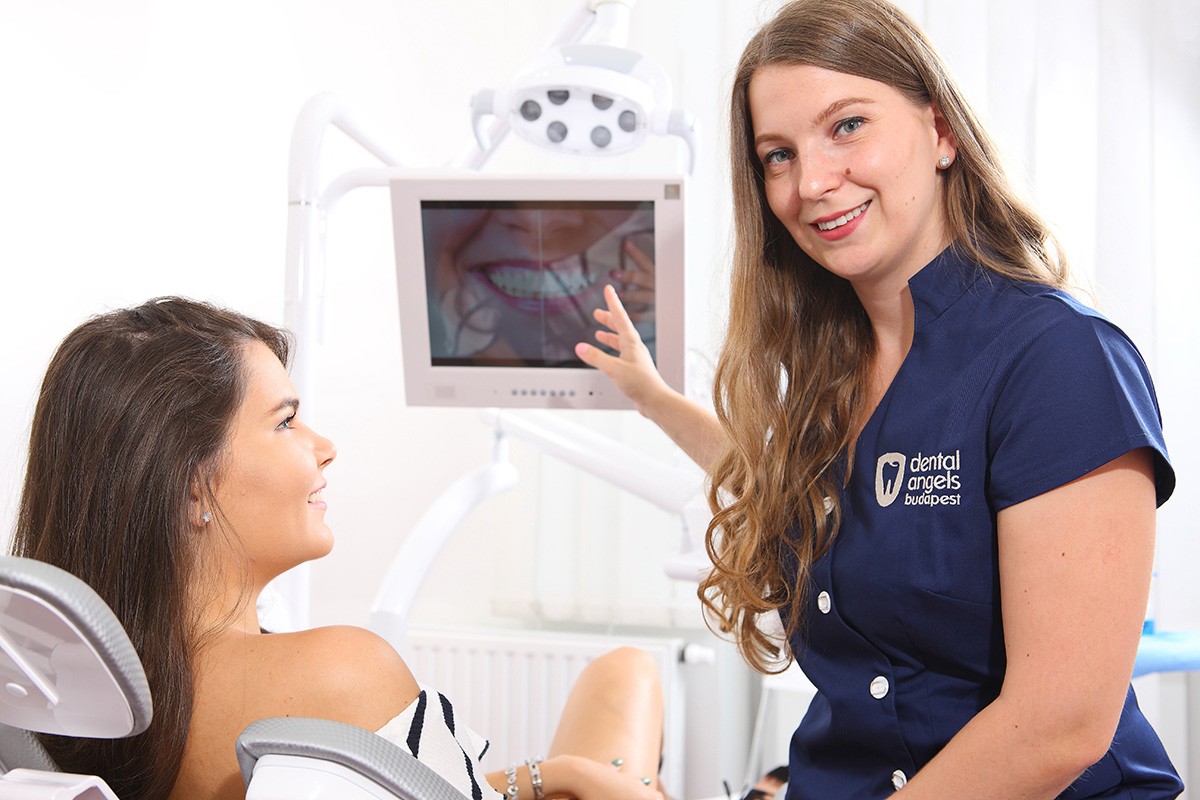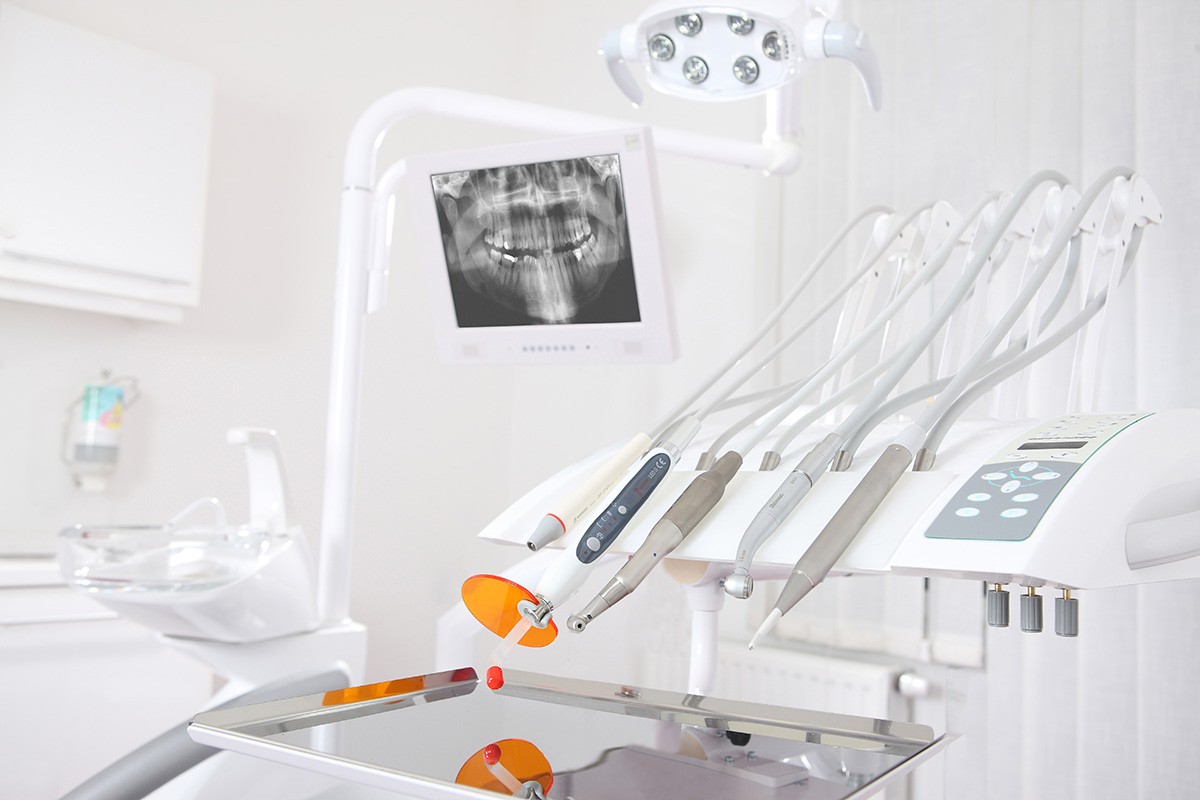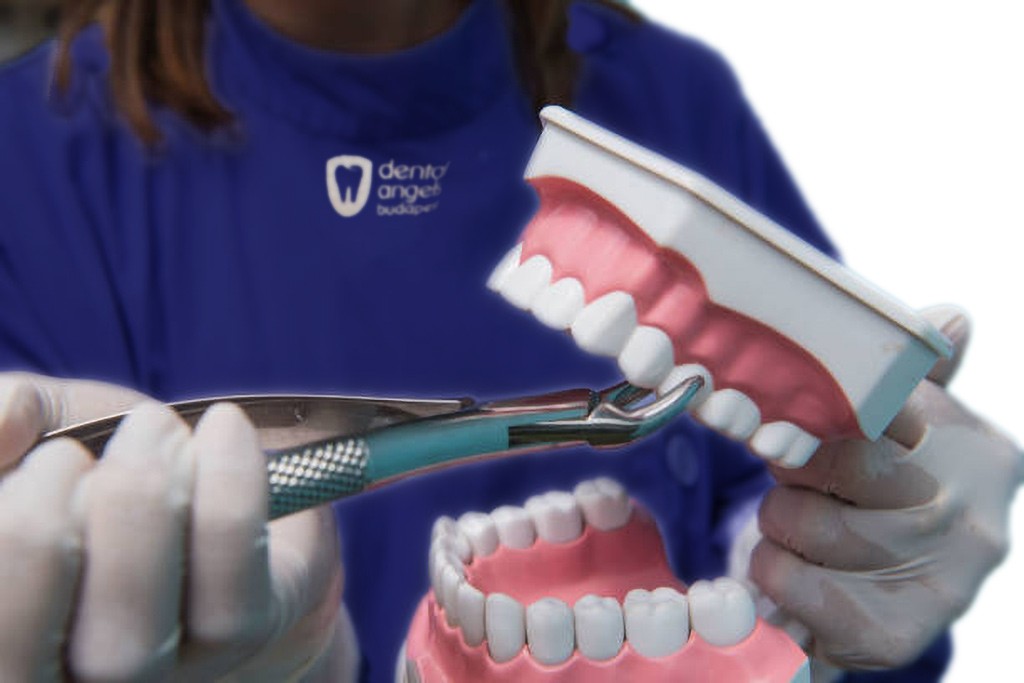There are certain physical factors (such as severely damaged tooth or advanced bone deficiency around the tooth), with which it is impossible to save the tooth and extraction is the only solution. Of course, this is discussed with the patient detailing all possible options before we removal of the tooth.
The treatment is completely pain free
as the area becomes numb after local anaesthesia. The extraction is a routine procedure if it has been done by a professional (dental surgeon) and with proper aftercare the affected area is healing quickly and easily.


Why and when is extraction necessary?
In childhood, baby teeth often don’t fall out naturally, preventing the adult teeth to emerge. In this case milk teeth extraction is unavoidable. Before fitting braces, the dentist may also find it necessary to remove teeth regarding on lack of space. It is also important to remove a tooth with multiple inflammation if permanent restoration of the tooth is not possible. Removal of wisdom teeth may also be warranted due to the likelihood of recurring inflammation, horizontal positing or a potential crowding of other teeth.
What to do after extraction?
To avoid unpleasant infections and for a quick recovery:
- avoid rinsing for at least 24 hours
- after 24 hours rinse gently with warm salty water or special mouthwash 2 times a day for several days
- avoid strenuous activities (sports, bending, sauna, etc.) for about a week
- it is not recommended to use the affected area for eating, but it needs to be kept it clean with a toothbrush
- avoid drinking alcohol and smoking for at least 24 hours, recommended longer
- consume drinks and soft food at room temperature
- completely avoid eating or drinking until numbness subsides
- use ibuprofen or paracetamol for the first 2 days to manage your pain, unless suggested otherwise by your dentist
- visit your dentist for a check-up if the pain does not get better after a few days or even worse
- if bleeding starts again during the day, press gauze pads firmly to the affected area for about 20 minutes, if it does not stop, seek the advice of your dental professional.

How to replace missing teeth?
Missing teeth can be replaced by bridges, dentures and implants. These options may vary for each person depending on their needs, the quality and quantity of their remaining bone and adjacent teeth. It is also advised for adults to replace missing teeth as soon as possible.


